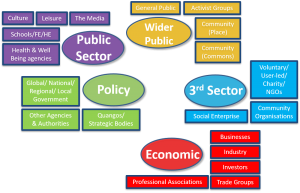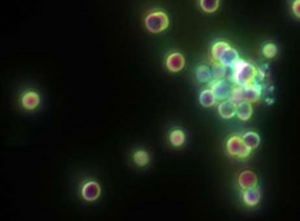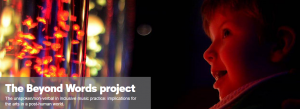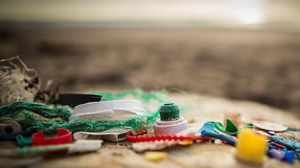As part of the University’s commitment to public engagement, as laid out in our Research and Innovation strategy, we recently invited Paul Manners, director of the National Co-ordinating Centre for Public Engagement (NCCPE), to facilitate a day of discussion around: What we mean by engagement? Who are our “publics”? And how best can we support and foster public engagement of research (PER) at the University of Plymouth.

It was an energising and inspiring day, not least because everyone who came was committed and passionate about PER in all its many guises. So in order to share the love, here are a few examples of PER that are already taking place across the University, which will hopefully inspire you as well!
Size does matter
Lots of our research explores the microscopic world, but these tiny subjects have huge impacts!
Antibiotic resistance is rapidly rising and threatens to upend a century of progress in modern medicine. Dr Matt Upton and colleagues in the Antibiotic Resistant Pathogens Research group are tackling this in 3 ways – first, through studying the genetic make-up of drug resistant bacteria; second, through the discovery of novel antibiotics; and third, through raising awareness of this serious and global threat to public health.  They have now been nominated for the 2018 Antibiotic Guardian Awards, for their innovative public engagement programme during World Antibiotic Awareness Week and the UoP’s Festival of Research 2018, which saw, amongst other activities, members of the public taking swabs from the environment which were then analysed and added to a database of potential antibiotic compounds. The Guardian award ceremony will take place in late June and we are keeping all our fingers (or flagella if you are a bacterium) crossed!
They have now been nominated for the 2018 Antibiotic Guardian Awards, for their innovative public engagement programme during World Antibiotic Awareness Week and the UoP’s Festival of Research 2018, which saw, amongst other activities, members of the public taking swabs from the environment which were then analysed and added to a database of potential antibiotic compounds. The Guardian award ceremony will take place in late June and we are keeping all our fingers (or flagella if you are a bacterium) crossed!
Under the sea
Continuing the microscopic theme, Prof Richard Thompson (Director of the Marine Institute) was recently awarded an OBE for his work on plastic pollution in the marine environment, especially on the ubiquity and dangers of microscopic fragments of plastic (or microplastics) that now pollute most if not all marine ecosystems.
Through engaging with politicians and policy makers across the globe, Richard has been instrumental in ‘driving through’ the banning of cosmetic microbeads and the legislation to reduce single use plastics such as carrier bags. The International Marine Litter Research Unit, headed by Richard, was involved in the production of the BBC’s recent Blue Planet series, which raised huge awareness of the harm caused by plastic litter; it has inspired many people and organisations to take action to reduce their own and others plastic use and campaign for reduction in single-use plastic.
[youtube https://www.youtube.com/watch?v=V0MpbfO0InM&w=560&h=315]
Under the feet
Of course, it’s not all about awards! Sometimes PER can be risky work. For example, many of us will have seen Prof Iain Stewart (Director of the SEI and UNESCO Chair in GeoScience) clambering up and around highly active volcanos in the name of public education (and entertainment) but he also spends time engaging with those communities most at risk from them. Iain’s interest in how best to communicate risks from geo-hazards such as earthquakes and volcanos has led to the production of videos for NERC (that have been used by the Red Cross), VolFilms, and the development of card and computer games as an education tool. This interest is now feeding into a project, with Dr Hazel Gibson, on understanding people’s perceptions of geology, and their relationship with the earth beneath their feet, and how that evolves in areas that have potential for geo-thermal energy projects. This project will involve many conversations with local communities in Cornwall and will hopefully improve communication between communities, government, industry and other stakeholders around novel geo-technologies in the future.
[youtube https://www.youtube.com/watch?v=8QNigxTN384&w=560&h=315]
https://vimeo.com/volfilm/about
Raising voices
Conversation with communities is fundamental to much public engagement and it’s no different in Plymouth. For example we have a number of oral history projects that aim to bring the stories and voices of previously neglected or marginalised communities to the fore. Dr Alan Butler (Director of Plymouth Pride) helped create the Plymouth LGBT Archive as part of his PhD, supported by the award winning, Heritage Lottery funded, Pride in Our Past project. Working with Plymouth and West Devon Record Office, the project created an archive of LGBT life in the city, populated by oral interviews with older members of the LGBT community, objects and other archival material and bringing to light the rich and varied history of current and past LGBT communities in Plymouth as well as training the next generation of local LGBT oral historians. Away from Plymouth, and all the way to Alberta, Canada, Dr Darren Aoki is directing the Nikkei Memory Capture Project, which is using public events, memory booths and interviews to collect the oral histories of post-war Japanese Canadians before the important stories of this generation are lost forever.
Oral history isn’t the only way that our research is helping raise voices. The BabyLab drives understanding of language d evelopment and bilingualism, Jocey Quinn’s collaboration with Plymouth Music Zone (PMZ) explored music as a tool for communication for people with aphasia, whilst Eduardo Miranda has developed a system that enables a paralysed musician to participate once again in an orchestra! In fact it’s almost impossible to document all the exciting, innovative, empowering public engagement activity taking place across the University in one post!
evelopment and bilingualism, Jocey Quinn’s collaboration with Plymouth Music Zone (PMZ) explored music as a tool for communication for people with aphasia, whilst Eduardo Miranda has developed a system that enables a paralysed musician to participate once again in an orchestra! In fact it’s almost impossible to document all the exciting, innovative, empowering public engagement activity taking place across the University in one post!
Tip of the PER Iceberg!
Please follow the links below to find out more about PER at the University and as the strategy develops there will be more posts highlighting the wonderful work taking place at Plymouth and the difference it is making locally, nationally and globally
Our Research Institutes all have extensive public engagement programmes, ranging from STEM activities to lectures to conferences; follow the links on our Research Home Page to find out more
Peninsula Arts also host research-related talks, music, performance, exhibitions, festivals and more
More Links:
- Some of the impact of our PER: https://www.plymouth.ac.uk/research/impact
- Community engagement activities: https://www.plymouth.ac.uk/tags/community-engagement
- Come On In: https://www.plymouth.ac.uk/tags/come-on-in
- Imperfect Cinema/ Dr Allister Gall
- Hotwire – Drs Andy Prior/ David Strang
- Refugees and Resiliance: https://www.plymouth.ac.uk/research/resilient-refugee-women
- Networks: https://www.plymouth.ac.uk/research/displacement-studies
- Healthy Aging: https://www.plymouth.ac.uk/research/voyage
- Underwater camera: https://www.plymouth.ac.uk/research/institutes/marine-institute/pluto
- Fundraising for Brain Tumour research: https://www.braintumourresearch.org/
- Keeping lungs healthy across the world: https://www.plymouth.ac.uk/news/plymouth-lung-expert-plays-role-in-ugandan-lung-institute
- Community Wellbeing: https://www.plymouth.ac.uk/news/students-bring-happiness-and-wellbeing-to-barne-barton

